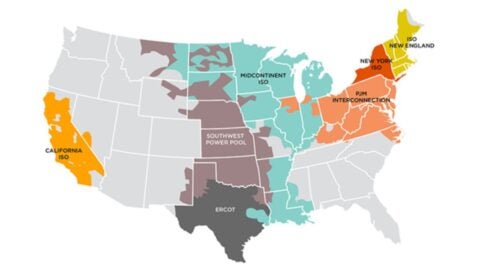Fact Check from Climate Hearings – 4/23/09
The House Subcommittee on Energy and the Environment is holding hearings this week on landmark climate and energy legislation.
We are launching a regular Fact Check series to correct the record on false and misleading statements from climate action opponents.
Here’s our second installment:
No one will buy hybrid vehicles unless forced to by the government. – Joe Barton, (R-TX)
Americans have already demonstrated that they will buy hybrids if they are reliable, economical, and stylish, and if they incorporate the convenience features we now expect in automobiles. The Toyota Prius was one of the best selling cars of 2007, with more than 181,000 sold. To date, Toyota has sold more than 700,000 Priuses in the U.S. In 2008, Toyota sold 30,693 of its large SUV, the Sequoia.
Cap and trade will kick working families when they’re down. – Fred Upton, (R-MI)
American working families are definitely down. Ohio has lost more that 213,000 manufacturing jobs since 2000. For Michigan, the figure is almost 497,000 jobs lost.
One way to get some of these jobs back is with a cap and trade bill to address climate change, which could spark a manufacturing renaissance. A single wind turbine contains 250 tons of steel, along with 8,000 parts, from copper wire, gearboxes, and ball bearings to electronic controls. A wind turbine tower contains more than 50 tons of steel. Jobs making these components, and installing and maintaining, turbines can be created here in America
EDF has created a map detailing where a carbon cap will create jobs in 12 states – go to www.lesscarbonmorejobs.org.
The number of manufacturing jobs in January 2005 (14.1 million) was well below its peak of nearly 20 million in late 1979. Causes of the decline in American manufacturing include a shift in consumer spending away from manufactured goods, in favor of services; a steady increase in labor productivity, which allows firms to produce more with fewer workers; and competition from foreign producers.
This bill is a disguised tax. – Robert Michaels, California State University
The bill is neither disguised nor a tax. Under cap and trade, there will be a modest increase in energy bills for the average American. EPA estimates it will only cost the average American household about 12 to 15 cents a day more in total energy costs. That’s roughly what it costs to brew one pot of coffee in the morning, and substantially less than a pack of chewing gum.
That’s nothing compared to what will happen to Planet Earth, and the economy, if we fail to reduce greenhouse gas emissions — punishing heat waves, droughts, water shortages, sea level rise that threatens coastal cities, food shortages around the world, intense hurricanes, and more. Even the military is worried about the national security implications. One never hears about these costs from the opponents of this bill – either because they don’t believe global warming is real, or they refuse to believe what scientists are saying about the future consequences of inaction.












